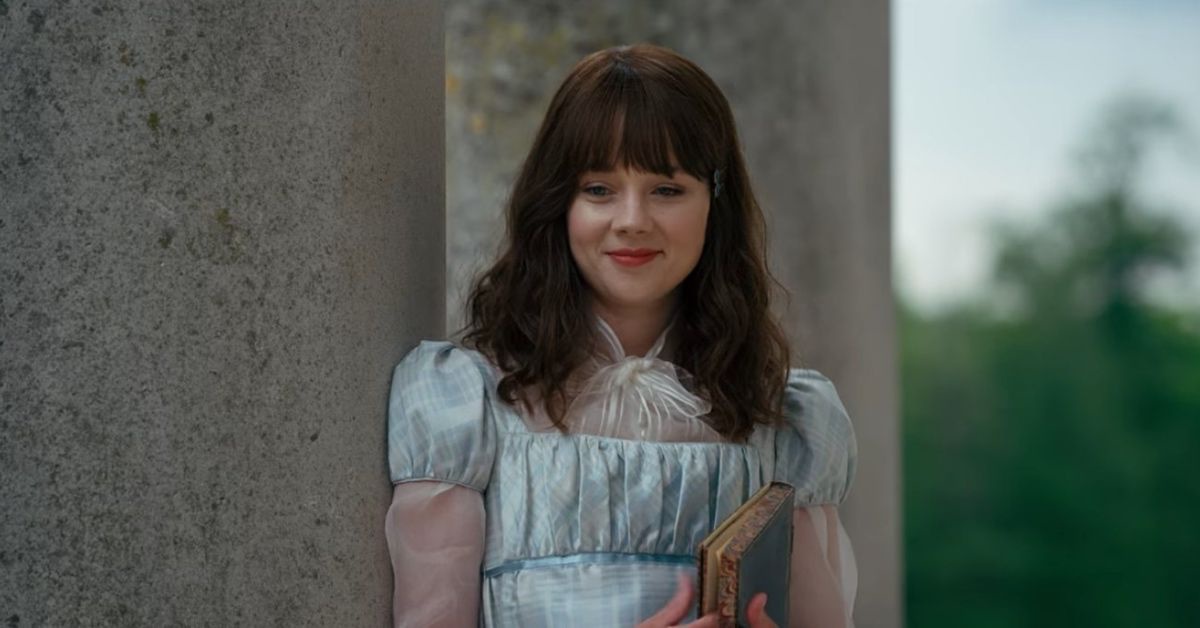Eloise Bridgerton and the Mary Bennet Problem

In Pride & Prejudice, author Jane Austen crafted the now-legendary Bennet family. A lower gentry household made up of an apathetic father, over interested mother, and a lot of daughters: Jane, Elizabeth, Mary, Kitty, and Lydia. We spend most of our time with the first two, and a big part of the third part with the last, but both Mary and Kitty exist on the periphery of the novel.
But between the two, Mary Bennet has become one that is connected with an archetype of the semi-bookish, plain sister among a galaxy of certifiable hotties. When looking at adaptations and on the surface, it is possible to see a lot of things that make Mary a relatable character.
However, in reading the text, Austen shows us that Mary is actually not very intelligent, but looks down on people and acts with a sense of moral superiority. Due to her social ineptitude, she talks at people, ignores family activities, but does so under the guise of something greater. She is always reading, but doesn’t get the themes or ideas of what she is reading. Instead, it is just … words on a page.
Eloise Bridgerton on the show Bridgeton is Mary Bennet plucked from the sidelines and given a larger role.
There are things to admire about Eloise and her desire to live a “spinster” life without the proper marriage expected of her. To push back against the ways that society pressures women to act. Those are good things. She comes in hot this season quoting Mary Wollstonecraft. However, Eloise, like Mary Bennet, is always trying to morally grandstand rather than actually have empathy for the women who are trying to make their best within a situation. Her dismissal of Daphne’s feminine accomplishments are filled with jealousy of her own failings, rather than delivering a thoughtful look at a woman who chooses not to fit in–not someone who just doesn’t.
During season two, Eloise was so deeply frustrating to watch that I fast-forwarded through most of her scenes. It is so frustrating to see her talk at Penelope, who has just lost her father, all her money, and is constantly scorned (due to an element of undiscussed, but clearly there, fatphobia).
Eloise feels like a parody of an intelligent woman from privilege because there is zero depth to anything she says. It is a performance piece we are forced to take part in. Not to mention, how will this characterization come together when it is Eloise’s book fate to end up married to another rich guy?
It is possible to have a rich young woman push back against society well on television in a period piece—look at Lady Sybil from Downton Abbey. The difference is that Lady Sybil put in the work. So far Eloise has only complained and if the series wants us to care about her, they need to give us more.
Mary Bennet existing as a flawed human character isn’t a bad thing, but too often people see “bookishness” as a replacement for a genuine personality and the act of holding a book in a scene as a placeholder for intelligence and insight. Eloise has neither and neither did Mary.
(image: Netflix)
Have a tip we should know? tips@themarysue.com